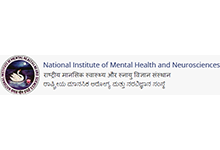A modern approach to cognitive testing
NeurOn has been designed from the ground up for remote, digitised, testing and easy access to your raw data.
Raw Data
You can access your collected raw data at any time
Longitudinal testing
We have made repeat testing over time easy and accessible
Randomised Stimuli
Pseudo-randomised, eliminating learning effects
Fairly Priced
From a single test to thousands, our pricing is fair and transparent
API Integration
Seamless integration to your system
Instant Results
Get instant results, saving huge amounts of time
CURRENT COGNITIVE TESTING
At the moment most testing for brain related diseases and illnesses are paper based, which is both cumbersome and expensive.
Current neuropsychological testing is mostly restricted to getting cognitive ‘snapshots’ of clinical clients or research participants. Such cross-sectional data collection is tried and tested over many decades but limits cognitive performance evaluation on several levels because:
Testing is limited to one or few testing sessions
Significant resources are needed to test larger cohorts of people
It is difficult to follow cognitive profiles of people over time
Normative data is only available for small samples from specific cultural and educational backgrounds
Significant test-re-test effects due to limited stimulus sets
Limited reaction time data
It’s time we did things differently!

THE WAY FORWARD
Measuring cognition at any place with internet connectivity, including a clinical practice, research lab, workplace, participants home or indeed anywhere off-site.
Establishing cognitive profiles of people before they come in for a clinical or research appointment, workplace interview or other assessment
Longitudinal tracking of cognition to allow better establishment of general cognitive status quo, decline or improvement and establish an audit trail for those with a duty of care
Collection of large normative data sets taking into account cultural and educational differences across clients and cohorts
Standardised way to administer cognitive testing over long time periods
Enables researchers to reach a much wider audience, quickly and easily
Instant results and access to raw data
7.3M+
Raw data points
8
Cognitive domains
21
Cognitive tests
44,000+
Normative data points
The NeurOn solution
We have developed an online platform for cognition testing, and our vision is for clinicians and researchers to own their data.
Our online testing (our tests are the gold standard) is super-efficient and very quick.
Our platform assesses results in seconds, thereby saving a great deal of time.
Our platform allows:
Use of standard existing neuropsychological and new cutting edge cognitive tests
Complete customisation of cognitive tests batteries for your needs
Assessment of clients and participants cross-sectionally and over time
Online dashboard for clinicians to create a quick cognitive profile of clients, which can also be exported as a report for clinical files
Complete access and export of raw data, including trial-by-trial data, for each participant
Scaling online testing from a single client to thousands of participants
Complete security, as we do not collect identifiable information of your clients and participants
Randomised stimulus sets allowing longitudinal cognitive testing with minimal test-re-test effects
Highly cost effective as we want to encourage people to start using online testing with price not being a barrier
Instant results and access raw data
Who's already using us?
We're proud to share some great feedback with you











Pricing
We are super efficient with exceptionally low overhead, and pass these savings on to our users
100 tests free
100 tests
- 100 free tests each year
- It's simple to register
- No payment details required
Per test
Purchased online
- Including your 100 free tests
- Optional percentiles
- Plus VAT
Large projects
Billed annually
- Volume discounts available
- Institutional licensing
- Let's talk
About us
We are steeped in the world of cognition testing, from both a clinical viewpoint and bespoke software.
We became increasingly frustrated by other testing systems, mainly paper based, time consuming, patients recognising the questions and format, and most importantly we wanted access to our own data.
So we got together to design a new approach, starting from scratch and building everything from the ground upwards. We work super efficiently with no offices to speak of, use AWS and tightly control costs at all times.
The net result is we have a system which satisfies what we believe clinicians and researchers want out of a cognition testing system.
Frequently Asked Questions
We’ve got a great software platform that works extremely well and are looking at who wants to use it. That could be researchers, PhD students or anyone interested in this sector and wants software to support their hypothesis. We work with different students and researchers up and down the country.
Our platform is being used in the sporting world, supporting studies into head injuries and their long-term impact via the SCORES project, as a great example of how we collaborate with researchers.
We want to talk to clinicians throughout the world who are interested in seeing how it could work in their home environment.
We are very open and constantly looking for new routes and opportunities, so if you have an idea, please get in touch.
We use Amazon Web Services as they hold ISO 27001 data security accreditation, offering a mature, robust cloud hosting solution trusted by millions across the globe.
Our patient data is non-identifiable, as our system uses tokens, which means we (or anybody else who shouldn’t be looking) never knows the identity of a participant, giving complete peace of mind.
We are fully GDPR compliant as you would expect.
Completely appreciate it doesn’t sound feasible that we can deliver a fantastic system at such low cost – but we can!
The reason being we are not greedy, but are trying to change the world, one step at a time.
We are investing for the future rather than looking for a quick return on our investment.
We control costs.
We work in the modern way, with exceptionally low overheads.
We are not looking to create a ‘get rich quick’ system but answer the frustrations clinicians and researchers.
Have a question? Get in touch
Please feel free to contact us via telephone, email or post
Post
NeurOn Limited
Centrum
Norwich Research Park
NR4 7UG
Working Hours
Monday – Thursday : 9:00 - 17:00
Friday : 9:00 - 16:00
Saturday : Closed
Sunday : Closed
